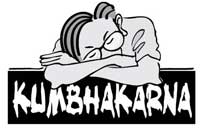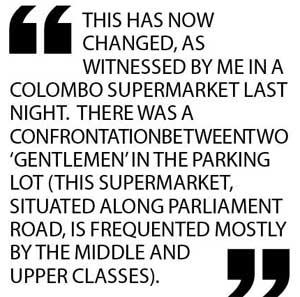 In the 1968 Thriller by American director Norman Jewison, Rod Steiger plays a beefy small town sheriff in America’s racially divided ‘deep south’, and Sidney Poitier plays a northern black police detective passing through the town. Poitier is arrested mistakenly for a murder. When Steiger realises that Poitier is a police officer, he asks sarcastically: “And what do they call you in Philadelphia, boy?”
In the 1968 Thriller by American director Norman Jewison, Rod Steiger plays a beefy small town sheriff in America’s racially divided ‘deep south’, and Sidney Poitier plays a northern black police detective passing through the town. Poitier is arrested mistakenly for a murder. When Steiger realises that Poitier is a police officer, he asks sarcastically: “And what do they call you in Philadelphia, boy?”
“Boy” was used in this (and many other similar contexts) for putting someone in his place – someone deemed to be socially or racially inferior due to race and other factors. Note that Steiger uses ‘boy’ instead of ‘nigger’, thus watering down the insult. ‘Nigger’ would have been directly, and devastatingly racist, and Steiger is shrewd enough to realise that he should not insult a fellow policeman to his face by calling him a Nigger. Instead, he goes to the next, and more manageable, level of insult. ‘Boy’ is a socio-cultural insult, not racial.
Today, no southern small town sheriff in the US would dare call an African-American police officer ‘boy,’ leave alone ‘nigger’. This is the result of a steady improvement of race relationships gained through many decades of struggle, culminating in the civil rights movement of the 50s and 60s. This doesn’t mean that racism doesn’t exist in the U.S. today. It means, rather, that people have learned the hard way not to overstep those boundaries that keep a civil society in reasonable shape. The ultimate proof of this development is the election (twice) of Barack Obama as US President, an African-American with a strange name (rather than Anglo-Saxon) to boot, something unthinkable when ‘In the Heat of the Night’ was made.

In Sri Lanka, through half a century following independence, racism was a political issue that grew increasingly virulent. But this racism was more political than personal. Race mattered much more than we like to think, as our politicians worked hard at institutionalising deeply-held prejudices. Just the same, people managed to observe the superficial but essential civilities of multi-ethnic co-existence to a remarkable extent. We have our own equivalent of ‘nigger’ for our minorities, but people by and large refrain from using those words to insult people to their faces ( though it was common enough in private life).
This has now changed, as witnessed by me in a Colombo supermarket last night. There was a confrontation between two ‘gentlemen’ in the parking lot (this supermarket, situated along parliament road, is frequented mostly by the middle and upper classes).
It should have ended there, but the argument continued inside the supermarket. It was initially carried out in English. One man, accompanied by his wife, was a Muslim. The other was a Sinhalese.
The exchange, now very loud, continued in English, with complimentary words like ‘ass’ and ‘idiot’ being hurled across – until the Sinhalese participant called his opposite number ‘Hambaya,’ which is a highly derogatory term used to insult Muslims.
At this point, the Muslim came out with choice expletives in both Sinhala and English – and who can blame him? To be called a ‘Hambaya’ (this was in front of his wife) must have been a deeply humiliating experience. Someone stepped between the two and separated them, or they might have started hitting each other.
If I’m in Kalmunai, I don’t expect to be called a ‘Sinhalaya’ to my face if I get into an argument with anyone. I’d prefer to be called an idiot. When people use your race or its characteristics to attack you, it’s highly insulting. Nonetheless, being called a Sinhalaya, which is the etymological equivalent of being called a Muslim, is still better than being a ‘Hambaya’ because, in actual usage, it doesn’t have the same degrading connotations as ‘demala’, ‘thambiya,’ or ‘lansiya,’ just some of the choice words used to insult minority members. It may be that, due to the high power social status the majority have enjoyed along the line, ‘Sinhalaya’ is simply not in the same class as an insult.
As to ‘hambaya,’ whatever the original status of this word (Hambantota comes to mind), its current usage is far removed from its origins.
When we descend to this level, civilisation is beginning to show deep cracks. No one present at the scene objected to the word except the victim, who hardly seemed to count. Interestingly, he did not proceed to call his attacker “Sinhalaya’ (perhaps due to the above-mentioned reasons).
.jpg)
Calling a Sri Lankan Muslim a ‘Hambaya’ is the equivalent of calling an African-American ‘nigger.’ Let’s not get confused. The word is nowadays commonly used by American rappers, mainly black youth. But, when young black men or women can get on stage and call themselves niggers, it shows to what extent this explosive word has been neutralised over the years.
We have experienced no such neutralising. I can recall at least one stage song which has used the word ‘Hambaya’. In the drama ‘Neyinage Sooduwa,’ there is a song (sung those days by Jackson Anthony and Mercy Edirisinghe) which uses the words ‘Hamba heththa’ (‘heththa’ can be translated loosely as the hordes). That certainly wasn’t very complimentary to Muslims, but I can’t remember any one raising any objection, even though many Muslims too, would have seen this drama.
That is not the same thing as the American rapper’s use of ‘nigger.’ It’s explosive, but no one noticed, which is typical of Sri Lanka. Racism isn’t new, but it takes on a new menace when a ‘gentleman’ of the majority can humiliate his Muslim equivalent and his wife in a supermarket by calling him ‘Hambaya.’ This is a very basic manifestation of the currently fashionable anti-Muslim hysteria. Can someone please debate this issue in what passes for parliament in this country? Ranil, Ravi, Rosy, Rauf Hakeem, Lalkantha, Vasu, Dayasiri, Ajith Kumara, anyone?
 In the 1968 Thriller by American director Norman Jewison, Rod Steiger plays a beefy small town sheriff in America’s racially divided ‘deep south’, and Sidney Poitier plays a northern black police detective passing through the town. Poitier is arrested mistakenly for a murder. When Steiger realises that Poitier is a police officer, he asks sarcastically: “And what do they call you in Philadelphia, boy?”
In the 1968 Thriller by American director Norman Jewison, Rod Steiger plays a beefy small town sheriff in America’s racially divided ‘deep south’, and Sidney Poitier plays a northern black police detective passing through the town. Poitier is arrested mistakenly for a murder. When Steiger realises that Poitier is a police officer, he asks sarcastically: “And what do they call you in Philadelphia, boy?”
.jpg)

